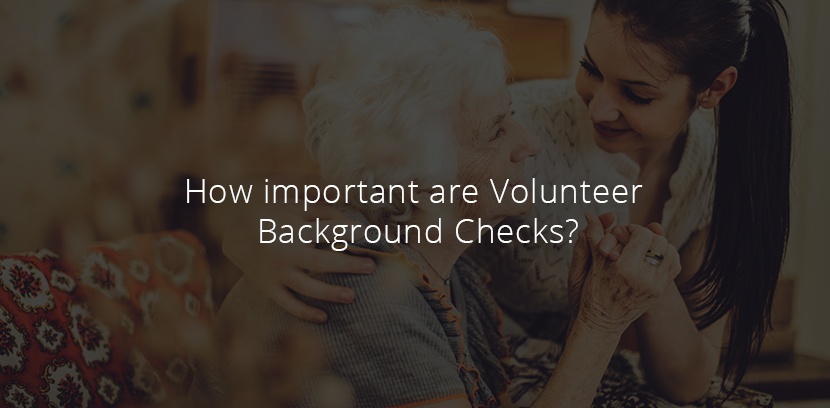
Volunteering is considered a selfless gift and many big-hearted individuals share their time and energy without pay. Much volunteer work caters to a vulnerable population and the volunteers pour considerable effort into serving others. Consider this - another type of work that could be considered “volunteer” is unpaid internships. Interns volunteer their time to organizations in order to gain valuable experience. Interns are typically screened as regular employees whereas volunteers may not be.
Are nonprofits and other organizations putting people at risk? How important are volunteer background checks?
Volunteer Work & Risks
Nonprofit organizations have relied on volunteers for decades. Working with children, disabled or the elderly for no pay is considered a selfless act of good. In fact, some organizations may go on a gut good feeling about those individuals who work for free. Typical examples of volunteer work include:
- Low income families and children needing housing, therapy or other services
- Community service
- Sports & recreation
- Summer camps
- Animal welfare
- Aging or elderly home health care
- Disabled care
Some risks in not screening volunteers include theft, abuse, and damage to the organization’s reputation. Even if a volunteer has passed, for instance, an FBI fingerprint background check, some offenses can slip through the cracks. It simply doesn't tell the whole story.
Best Practices for Hiring Volunteers
In order to minimize the liability of damages and risk to your current volunteers and those they serve, organizations can adopt some best practices with regards to “hiring” volunteers.
Background screening policy – Creating a job-specific background screening policy will simplify the screening process as well as save money. Not every volunteer position will require all background checks. Job responsibilities should be evaluated for their risk in order to determine the relevant background checks associated.
Employment legislation – Nonprofits and other organizations are held to the same standards as employers with regards to discrimination, fair labor and other employment laws. Staying aware of the legislation at the community, city, state and federal level will help ensure compliance.
FCRA Compliance – Hiring a volunteer is treated the same as hiring an employee. The Fair Credit Reporting Act (FCRA) rules still apply. Volunteers must give consent before being screened and hiring managers must follow Adverse Action procedures to remain in compliance.

Background Checks for Volunteers
Like employees, volunteers with particular job duties should be subject to a comprehensive background check. Not only that, all FCRA procedures usually followed by human resources managers must also be followed. Often, nonprofits or other organizations that rely on volunteers opt out of background checks due to the cost. These groups are running on low or no budgets and screening with a high volunteer turnover rate could be cost-prohibitive.
Considering the cost of theft, violent criminal behaviors and the risk to the organization if someone is hurt, background checks are a worthwhile investment. In actuality, volunteer background checks are more affordable than ever before. A reputable professional background screening company will also work with nonprofits to determine the minimal screenings necessary to protect the organization. They will also help with:
- Employment law compliance
- FCRA compliance
- Hiring practices
- Background screening policy best practices
Ask VeriFirst about our pricing discounts for volunteer background checks.
